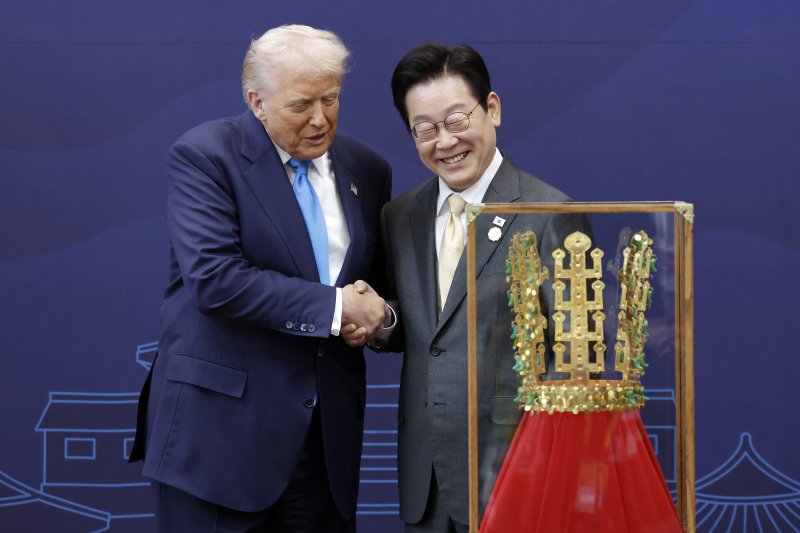Lee: “We Will Increase Defense Costs... Request for Decision on Nuclear Submarine Fuel Supply” [South Korea–United States summit]
- Input
- 2025-10-29 18:30:37
- Updated
- 2025-10-29 18:30:37

On the 29th, President Lee Jae Myung and President Trump held the South Korea–United States summit at the Gyeongju National Museum. President Lee declared that South Korea would increase its defense costs as part of significant progress in security negotiations with the United States. He stated, “Going forward, the South Korea–U.S. relationship must evolve into a modernized, future-oriented comprehensive strategic alliance. South Korea intends to significantly enhance its independent defense capabilities through increased defense costs and the advancement of the defense industry.”
Following the promise to raise defense costs, President Lee requested the supply of fuel for nuclear-powered submarines. He clarified, “We are not seeking to build submarines equipped with nuclear weapons, but rather, since diesel submarines have limited underwater endurance, there are constraints in tracking North Korean or Chinese submarines. If possible, allowing fuel supply would enable us to build several submarines with conventional weapons using our own technology, which could help defend the East and West Seas of the Korean Peninsula and significantly reduce the burden on U.S. forces.”
With tariff negotiations in mind, President Lee also pledged to support the revitalization of U.S. manufacturing through expanded investment and purchases in the United States. He explained, “South Korea will actively support the revival of U.S. manufacturing and promote cooperation in the shipbuilding industry by increasing investment and purchases in the United States. This will benefit both the South Korean and U.S. economies and will help to further solidify and deepen the longstanding ROK-US Alliance.”
In response, President Donald John Trump remarked, “South Korea has become a leader in the shipbuilding industry,” emphasizing the importance of bilateral cooperation in this field. He noted, “Shipbuilding is essential, and we are working together at the Philadelphia Naval Shipyard and other locations. Many of your people are coming to the U.S. to build ships together, and we will reach the top in a short period.”
However, regarding tariff negotiations, neither leader made specific remarks about the detailed management of South Korean investment in the United States.
President Lee also called on President Trump to play a role in promoting peace on the Korean Peninsula. Although President Trump had hoped to meet with Kim Jong Un, the meeting did not take place. President Lee commented, “Although Chairman Kim has not yet fully accepted the President’s sincerity, and the meeting did not materialize, the President’s willingness to meet and his statement that he is always open to talks have, in themselves, contributed significantly to fostering a sense of peace on the Korean Peninsula.”
As a result of the South Korea–United States summit, the Ministry of Science and ICT (MSIT) signed the Korea-U.S. Technology Prosperity Memorandum of Understanding (MOU) with the United States to strengthen cooperation in key technologies such as Artificial Intelligence (AI), next-generation communications, the biotechnology industry, quantum, and the universe. The two countries agreed to bolster comprehensive cooperation in core technologies, including accelerating AI applications and innovation and establishing reliable technology leadership.
syj@fnnews.com Reporter